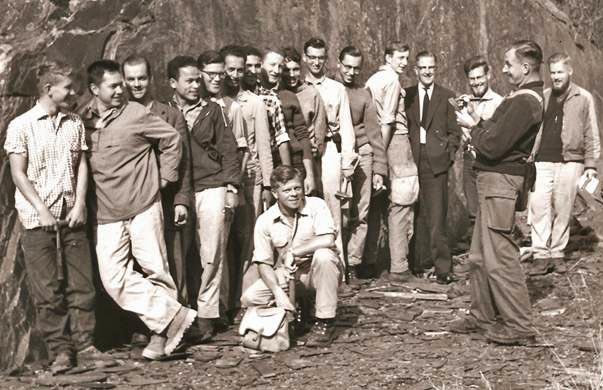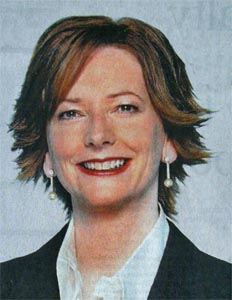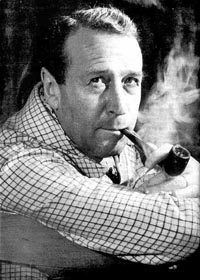|
Biographical Log of Michael Furstner - Page 172
08 | 09 ||
2010 :
Jan |
Feb |
Mar |
Apr |
May |
Jun |
Jul |
Aug |
Sep |
Oct |
Nov |
Dec || Page :
Previous |
Next
The Martinshof Story -
A Philosophy of Happiness -
Life Awareness -
Maps & other Text series
Most Recent -
Next -
Previous -
Page 1 -
Photos -
Index -
Topics -
MP3s -
Jazclass Links
Friday & Saturday, July 16 & 17 2010
(diary)
 Watching the Tour de France travelling through the Massif Central on TV
last night my mind was cast back 51 years to the summer of 1959.
Watching the Tour de France travelling through the Massif Central on TV
last night my mind was cast back 51 years to the summer of 1959.
I had completed my
first stint of geology fieldwork in my designated mapping area in Galicia, then
traveled by train to Bayonne on the Spanish - French border. From there I hitch hiked
my way to a small town in the Massif Central (forgot its name, Brive ?) to attend a geological
excursion through that region with Prof. Den Tex.
On my arrival I collected a letter from my girlfriend
Antien who wrote to me she had started a new relationship with a fellow
goldsmith student in Schoonhoven. This of course upset me considerably, but
being far away and committed to the geology excursion there was nothing I could do
about it. Every night, back at the hotel of the day, I would play bridge and drink lots
of wine deep into the night.
 The exclusion itself was quite good and included a climb of the Massif's most famous
mountain, the Puis de Dome.
The exclusion itself was quite good and included a climb of the Massif's most famous
mountain, the Puis de Dome.
At that time the Tour de France was also in
full swing, and as it happened passed that year through the Massif Central. So that,
surprise surprise, one evening (in Clarmont-Ferrand ?), while we all sat at dinner,
the two most legendary cyclists of the time, the multi-time
Tour winner Anquetil (from France) and the champion mountain climber
Bahamontes ("The Mountain Goat" from Spain) suddenly entered our hotel.
It struck me how
small both men were, but how powerful their upper leg muscles.
After having showers in their rooms both men came down and joined us in the dining
room, although of course not on our table. All the same for most of us, who were
devoted followers of this epic annual contest, it made our day.
Most Recent -
Next -
Previous -
Page 1 -
Photos -
Index -
Topics -
MP3s -
Jazclass Links
Sunday & Monday, July 18 & 19 2010
(diary, politics)
 This last month Kevin Rudd has been kicked out as Australia's Prime Minister by
the Labour Union heavies and put Julia Gillard in his place. On the plus side,
this now is Australia's first female Prime Minister and first self declared
atheist.
This last month Kevin Rudd has been kicked out as Australia's Prime Minister by
the Labour Union heavies and put Julia Gillard in his place. On the plus side,
this now is Australia's first female Prime Minister and first self declared
atheist.
However, on the negative side, absolutely nothing has changed in
terms of policy and Government direction. After bungling around big time for the past
three weeks Gillard has called for an August 21 General Election, hoping to pull
through on the strength of her "honeymoon" period with the media and general public.
A friend of mine commented only last week that she did not know of any socialist
Government in the world that had not damaged its country. I don't have the knowledge to
confirm that, but the UK, after its decade plus of Labour Government, certainly is now
in the greatest mess of at least the post WW2 era, leaving Cameron and Clegg to clean
up the mess.
Australia too has suffered economically under the three Labour Governments it
has had since WW2. The Whitlam Government of the early 1970s was a disaster for
the Australian mining industry, which took over 10 years to recover. (The Government was kicked out by the Australian Governeor General halfway through its legitimate term.)
The
Hawke Government of the 1980s put draconian taxes on our oil and gas industry
with the result that this resource rich country is now largely dependant on overseas fuel imports, as only
the North West Shelf resources (off the West Australian NW coast and exempted from the tax) have been further developed and
other investments (these past 15 years) have gone overseas, notably to Indonesia and Qatar at our expense.
 Julia Gillard has watered down Rudd's ridiculous mining profit tax, but the new
Resources Rent Tax she imposed on all iron ore, coal, oil and gas mining in Australia is little
better, taxing these industries at the rate of 46%, the highest in the entire
world.
Julia Gillard has watered down Rudd's ridiculous mining profit tax, but the new
Resources Rent Tax she imposed on all iron ore, coal, oil and gas mining in Australia is little
better, taxing these industries at the rate of 46%, the highest in the entire
world.
Just this week it was confirmed by a world economic expert (taking a sounding around
the world) that Australia is now viewed with great suspicion by investors around the
globe. It has in fact lost total credibility as a reliable country to invest in. As a
result small Australian mining ventures looking for finance to get up and running will
get no finance, unless they pay an extra 5% penalty rate on their borrowings. This will
virtually kill off any new development in this country.
The tragedy of course is that Australians are bombarded with superficial hollow Labour
slogans of "moving the country forward", and the likelihood of another 3 years of
disastrous (workers union controlled) Labour mismanagement.
Will Australia have the
insight to vote Tony Abbott in and kick Labour out in five weeks
time. I hope, but I am not confident at all.
Most Recent -
Next -
Previous -
Page 1 -
Photos -
Index -
Topics -
MP3s -
Jazclass Links
Tuesday, July 20 2010
(diary)
 As far as I can recall the only books I have ever read of Georges
Simenon are his detective stories featuring Inspector Maigret.
As far as I can recall the only books I have ever read of Georges
Simenon are his detective stories featuring Inspector Maigret.
But I have
now just completed reading one of his romans durs ("hard novels") entitled
The man who watched trains go by ("Homme qui regardait passer les trains",
written in 1938).
Simenon's romans durs are highly entertaining psychological
novels with a hard edge to it. They have been described as being "existentialism with a backbone of tempered steel" and more
philosophical profound than any of the fiction by Albert Camus or Jean Paul
Sartre!
"Simenon may be", writes Luc Sante in his Introduction
"the most famous unknown (literary) writer of the twentieth
century". And from what I have read so far I tend to agree with all the above.
Although Kees Popinga (the Dutch main character in the novel) does watch
some real trains go by, the novel's title reflects his underlying feeling that life's
many opportunities are passing him by.
|
Kees Popinga is a highly respected member of the Groningen community in which he is firmly entrenched. He has a
beautiful home, nice family and is second in charge of a shipping supplies business
where he has been working all his life. Then suddenly he is told that the business is
about to be declared bankrupt as a result of his bosses mismanagement of the company's
finances. Popinga, who has invested all his life savings in the company (and still with
a large mortgage on his house) is now finacially totally ruined.
This new reality has an enormous immediate impact on Popinga, but instead of feeling
totally crushed by it he sees this as a tremendous opportunity to escape from
his entrenched predictable humdrum life.
He suddenly feels free now! He can do
what he wants and be whoever he wants to be, and with a handful of cash, given by his
boss, he leaves his home and family behind and travels by train to Amsterdam to an
attractive woman, now prostitute, his boss used to visit weekly.
Unfortunately, besides his suddenly found sense for freedom, the culture shock
of the bankruptcy has also released a rather unpleasant element of Popinga's
nature, his envy and vindictiveness, which until now he had largely managed to
keep under control.
So when the prostitute humiliates him by laughing at his
demands, he accidentally kills her.
From here on it is all downhill for Popinga. He flees by train to Paris where,
after a number of adventures and misfortunes he is finally captured by the police, sent
back to Holland and placed into an asylum.
Towards the end of his experiences in Paris he realises that he has been only an
"amateur" at creating a new life for himself, mainly (he believes) because he
tried this "too late in his life".
|
These days it is so easy to break out off a set life pattern and seachanges or
treechanges are rather common, hardly commented upon, certainly not in casual
and laid back Australia. But in 1938, when Simenon wrote this novel, and up to 30 or 40
years later attitudes were quite different.
Simenon's novel resonates strongly with
me on two counts :
Firstly I have felt since a very early age in my life that I did not
wanted to be "captured" and "imprisoned" forever within one given social group. I have
always had great interest to investigate a new social environment, but once the passage
of time and increasing familiarity threatened to pull me into it too strongly I would
disengage and leave. This has been a recurring pattern at various levels throughout my
life right up to the present day. To grow, I have always believed, one must
change and not settle down in a fixed predictable pattern.
Secondly like Popinga, my life too was turned upside down, in my case during my
mid life crisis. And I too have had a positive as well as a negative reaction to
this crisis. I have grasped the opportunity for greater freedom and a new
direction in my life (music) and (unlike Popinga) had the experience (or expertice) to succeed.
But it has had as downside a strong increase of my emotional
intolerance I don't believe I had before. At the slightest (perceived) sign of
encroachment on my freedom I get my hackles up and react strongly. This has especially
affected the few relationships I have had after my marriage. I try to subdue this, but
I find it not easy to do, even now.
Comments -
Most Recent -
Next Page -
Previous -
Top -
Page 1 -
Photos -
Index -
Topics -
Jazclass Links
Copyright © 2010 Michael Furstner
|

 The exclusion itself was quite good and included a climb of the Massif's most famous
mountain, the Puis de Dome.
The exclusion itself was quite good and included a climb of the Massif's most famous
mountain, the Puis de Dome.  This last month Kevin Rudd has been kicked out as Australia's Prime Minister by
the Labour Union heavies and put Julia Gillard in his place. On the plus side,
this now is Australia's first female Prime Minister and first self declared
atheist.
This last month Kevin Rudd has been kicked out as Australia's Prime Minister by
the Labour Union heavies and put Julia Gillard in his place. On the plus side,
this now is Australia's first female Prime Minister and first self declared
atheist. Julia Gillard has watered down Rudd's ridiculous mining profit tax, but the new
Resources Rent Tax she imposed on all iron ore, coal, oil and gas mining in Australia is little
better, taxing these industries at the rate of 46%, the highest in the entire
world.
Julia Gillard has watered down Rudd's ridiculous mining profit tax, but the new
Resources Rent Tax she imposed on all iron ore, coal, oil and gas mining in Australia is little
better, taxing these industries at the rate of 46%, the highest in the entire
world.